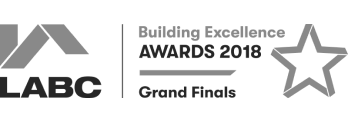Entering the world of professional work after a few years at university is daunting.
You may have worked throughout your studies by launching a side hustle or taking on a part-time job and think you’ve mastered your interview technique. However, most graduate roles and programmes are highly sought-after and require more intense interview preparation.
Luckily, many graduate interviews follow a similar pattern designed to determine whether you’re the best fit for the role and if you’ll use the scheme well. This knowledge makes preparing for an interview slightly less stressful, as you can fine-tune and practice your answers beforehand.
Read on for the most common graduate job interview questions, including example answers and tips for landing your next role.
What is a graduate job?
Graduate jobs are roles that require a degree, as they’re usually aimed at fresh graduates. They are entry-level positions that generally don’t require significant job experience and are intended to help kickstart a graduate’s career.
You may also come across ‘graduate schemes’ during your job hunt. These usually include a specific training programme, sometimes towards a qualification, and are designed to shape you into a future business leader.
Graduate schemes may have a fixed contract length, after which it is decided whether to move you into permanent employment on completion. Most graduate schemes are oversubscribed thanks to generous benefits, training, and the hope of a long-term role in a desirable sector.
Many organisations offer graduate jobs or schemes. Investment banks, law firms, healthcare, and roles in education are among the most popular graduate jobs. These roles give fresh graduates a taste of their chosen industry with hands-on experience and detailed training.
Graduate interview questions

You’ll never know all the questions a potential employer will ask during your graduate job interview. However, it pays to be as prepared as possible — with 36.4 million graduates predicted in the UK by the end of 2022, standing out from the crowd is crucial.
One way to get prepared is by researching common graduate interview questions.
Graduate job interview questions vary across industries but usually follow a similar setup — who you are, why you want the role and would be the best fit, and any relevant experience.
1. Tell me a bit about yourself
Most interviews begin with this question to break the ice and allow the hiring manager to get a feel of who you are. The question is a chance to showcase your academic accolades, relevant hobbies, and professional life experience up until now.
As this is a graduate role, it’s good to state you’ve recently graduated or are due to graduate soon. You should also include details of your degree and any interests you developed from your studies. [HS1]
If some time has passed between your graduation date, explain what you’ve been doing. Contrary to popular belief, decent employers won’t look down on career breaks that may include travelling or working on a side project. If you’re comfortable sharing why there is a ‘gap’ in your CV, this opening interview question is a great place to subtly slip it in and avoid awkward conversations later down the line.
Nowadays, many graduates enter their professional careers already having a few roles under their belts. Even if your work experience doesn’t stretch beyond a part-time gig at the local pub, mention it. Any work indicates that you’re more likely to be comfortable working within a team, can take instructions, and are familiar with the working world.
Finally, include any relevant hobbies or interests. For example, if applying for a graduate job in publishing, it’s beneficial to mention your monthly book club or literary-focused TikTok account. Your love of swimming, the piano, or skilled green fingers are lovely things to share at this point, so the hiring manager has a well-rounded view of who you are and the things that matter.
2. Why do you want to work at this company?
This question is a chance to display your knowledge of the company and the vacant role.
Think about what initially drew you to the company — did you like their online voice, or were you impressed by their latest research?
Next, demonstrate that your interest went beyond a surface-level search. For example, say something like, “I was then delighted to learn that…” the company manages a brand you love, publishes your favourite author, has an impressive training scheme, or has plans for an exciting new product.
Lastly, it’s time to focus on the graduate role. What elements of the job appeal to you? If the chance to work on big-name client accounts excites you, say this. Or perhaps you’re interested in learning more about fintech, which the graduate scheme role offers.
3. Outline your strengths and weaknesses
No, this isn’t a trick question — potential employers want to know about the traits you consider a weakness.
However, there’s a better way to answer this question than simply rattling off the things you’re good and bad at.
Analyse the job description beforehand and choose a few skills you think are required to do the role well. For example, working well under pressure is crucial if you’re applying to work in a busy newsroom. Sensitivity and compassion are vital traits if your graduate job interview is in the care industry or working with vulnerable people.
Regarding the weakness part of the question, don’t just list your bad habits and move on. Instead, discuss how you overcame those so-called weaknesses and continue turning them into strengths. Time management may not have initially been your main focus at school, but juggling your final year dissertation alongside a part-time job and sports commitments meant you learned how to manage multiple tasks and meet deadlines.
4. Tell us about a time you overcame a challenge

This question may also come alongside other graduate competency interview questions, such as ‘share a time you led a project’ or ‘discuss how you helped solve a problem.’ Intended to determine real-life examples of a candidate’s skill, your response to this question is a chance to detail life experiences and ways of thinking.
Recruiters recommend using the S.T.A.R. technique when answering competency-based questions. Pick a recent event, project, or experience and break it down into these parts:
- Situation: explain what happened
- Task: discuss what you had to do
- Action: outline how you achieved this
- Results: share the outcome of the experience
While you may not have much professional experience, overcoming challenges, project leading, and problem-solving are things we handle daily. Think creatively and analyse how your time at university or hobbies challenged your thinking or turned you into a leader — you may be surprised with the quality of your answers.
5. Why are you the best person for the job?
Here’s your chance to sell yourself and leave the hiring manager feeling they’ve got no choice but to give you the role.
Explain what you think you can bring to the team, whether practical skills and knowledge or a fresh perspective from a different angle.
It’s unlikely you’ll have years of professional work experience behind you — don’t worry, employers will expect this if advertising for a graduate role. Instead, use this question to convey your interest in progressing in the role, company, or wider industry.
Ensure your answer is clear yet passionate. Employers are likelier to choose someone they feel will enjoy the job and become invested in the company, as it means you’re less likely to move on quickly.
Mention the required skills observed in the job advert and how you fulfil each. Include details of university modules that helped develop these attributes or work experience and interests outside of school that demonstrates your suitability. Many hiring managers at large companies work to an almost checklist when choosing new starters — make their job easier by ticking off those boxes for them.
6. Do you have any questions?
Don’t pass up the value of this question — this isn’t just a polite way of ending an interview.
Instead, use this as an opportunity to pry deeper into company culture, strategy, and plans.
Some examples include:
- What are the biggest challenges in the role?
- Who does the role report to? How big is the wider team?
- Can you tell me a bit more about the company culture?
- What are the company’s upcoming goals?
Whether you’re looking for vibrant student digs or searching for your dream home as a young professional, Pickard Properties has you covered with a range of quality houses and flats across the Leeds area.



